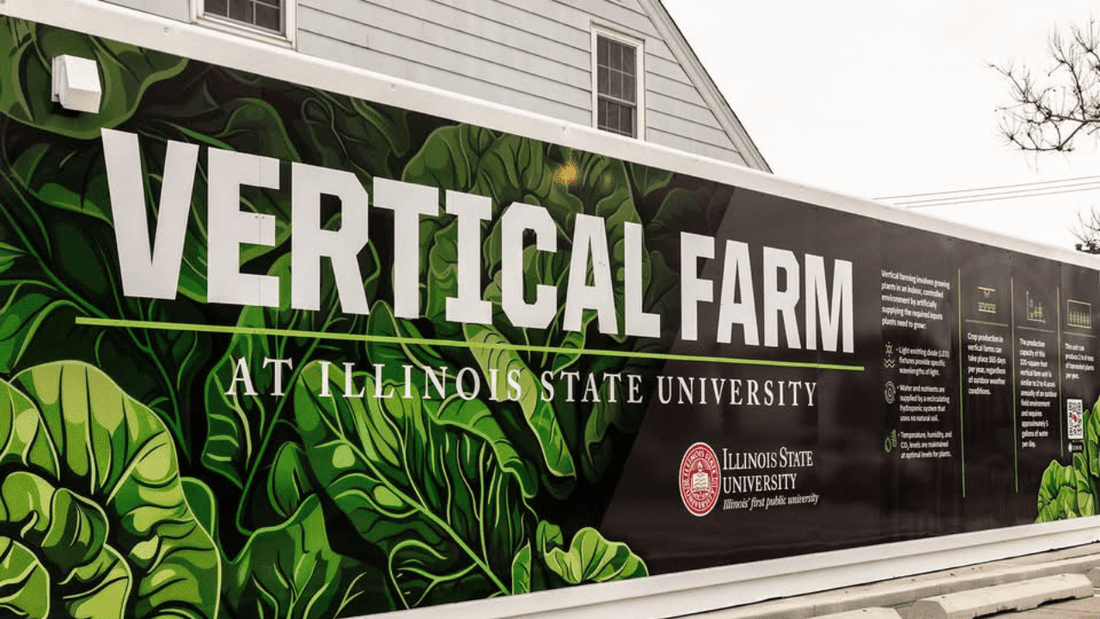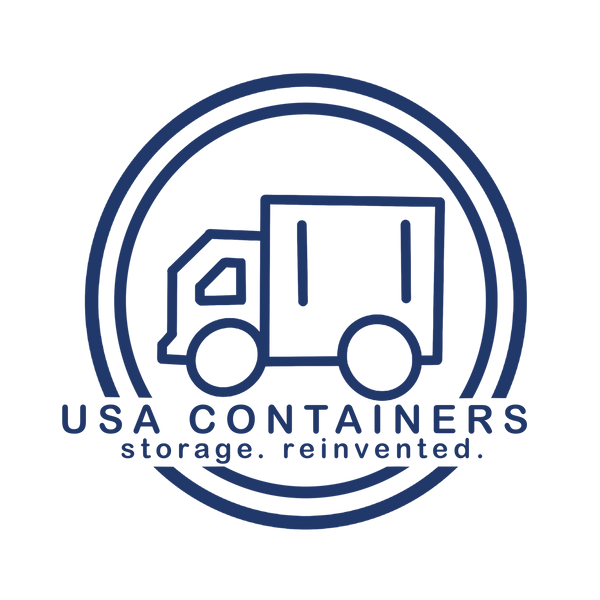
Inside Illinois State University’s Shipping Container Vertical Farm: A New Era of Urban Agriculture
Share
Illinois State University recently introduced a pioneering vertical farm inside a repurposed shipping container, combining smart tech and sustainability. Situated at 305 North School Street—right next to the Office of Sustainability—the project officially opened on May 1, 2025. This venture offers an impressive example of how urban agriculture can be both innovative and practical.
What Makes the ISU Vertical Farm So Special?
-
Compact powerhouse: A standard 40’ shipping container has been transformed into a fully controlled growing environment.
-
Vertical hydroponics at scale: Inside are 256 vertical towers, each 7 feet tall, with space for up to 4,600 plants—equivalent to 1–2 acres of traditional farmland.
-
Resource-smart design: It operates on just ~5 gallons of water daily—about 95% saving compared to field-grown crops—thanks to a closed-loop hydroponic system with nutrient recirculation.
-
LED-powered efficiency: Carefully tuned LED lights ensure year-round productivity without seasonal limitations.
-
Tech-savvy control: The environment is closely monitored—temperature, humidity, CO₂, pH and nutrient levels are all tracked and managed via sensors.
Why This Project Matters
1. Transforming Agriculture Education
The vertical farm is more than an experimental setup. It's a hands-on classroom and career launcher for ISU students in agriculture and horticulture. They’ll learn hydroponics and controlled-environment farming—skills increasingly in demand as urban food systems evolve.
Dean Chad McEvoy emphasizes that this is “an example of sustainable urban agriculture” that gives students and the community real-world insights into next-gen food production.
2. Shaping Community and Industry
The vertical farm serves as a demonstration hub. Community groups, schools, aspiring urban farmers, and entrepreneurs are invited to learn from it. It's a grassroots effort designed to inspire replication and scale-up beyond campus.
3. Tackling Sustainability Head-On
ISU President Aondover Tarhule highlights that this project "is about harnessing technology to reduce our dependence on traditional, resource‑demanding agricultural methods." The aim: boost food security, reduce environmental impact, and pioneer sustainable practices.
By allowing crops like basil, cilantro, and parsley to grow year-round indoors, the farm cuts pesticide use, conserves water, and minimizes harmful runoff.
Project Overview
| Feature | Details |
|---|---|
| Cost & timeline | $200K investment; construction wrapped by March 2025, ribbon cutting May 1, 2025 |
| Partners | College of Applied Science & Technology, Department of Agriculture, Office of Sustainability |
| Origins | Born from a 2020 Innovation Consulting Community proposal |
Technical Breakdown
-
Germination & seed trays: Seeds are planted in compostable root cubes, managed on trays atop a workbench. Irrigation and LED lighting are timer-regulated.
-
Transplant to towers: After 3–4 weeks, seedlings graduate into vertical towers. Each tower supports full plant growth to harvest—a process taking another 3–4 weeks.
-
Precision control loop: The farm boasts sensors for temperature, humidity, CO₂, nutrient concentration, and pH—ensuring optimal conditions through automated monitoring.
Through this structure, the farm achieves high efficiency, minimal waste, pest-free production, and consistent plant health with reduced chemical input.
What This Means Beyond Campus
Sustainable Urban Agriculture in Action
ISU's vertical farm aligns perfectly with broader urban agriculture goals—producing food where people live, slashing transport emissions, and reducing dependency on traditional farms. Its controlled-environment agriculture (CEA) model offers safe, pesticide-free crops.
Scaling Solutions for City Environments
This shipping-container model is replicable. It’s mobile, plug-and-play, and fits into urban grid systems—parking lots, rooftops, or community centers. It can bridge gaps in food access, especially in food-desert neighborhoods .
Training the Next Wave of Growers
ISU is also preparing to launch its first Sustainable Urban Agriculture course as a capstone offering in 2025. That ties directly into vertical farming and equips students with skills to take this concept forward—potentially launching similar units in other urban settings.
Illinois State’s vertical farm in a shipping container is making quiet waves for several reasons. It’s small in footprint but big in impact—teaching students, empowering communities, and challenging outdated production methods. By delivering field-level yields within a 320-square-foot container, it proves that resource-light, high-tech food cultivation can be both viable and scalable.
If you're curious about how urban agriculture can evolve in practical, hands-on ways—or if you're exploring how to make every drop of water and watt of energy count—keep an eye on ISU’s moving example. It’s not just about growing plants: it’s about planting the seeds of a more sustainable, resilient food ecosystem.
Fill out the form below for a free shipping container quote from USA Containers:
